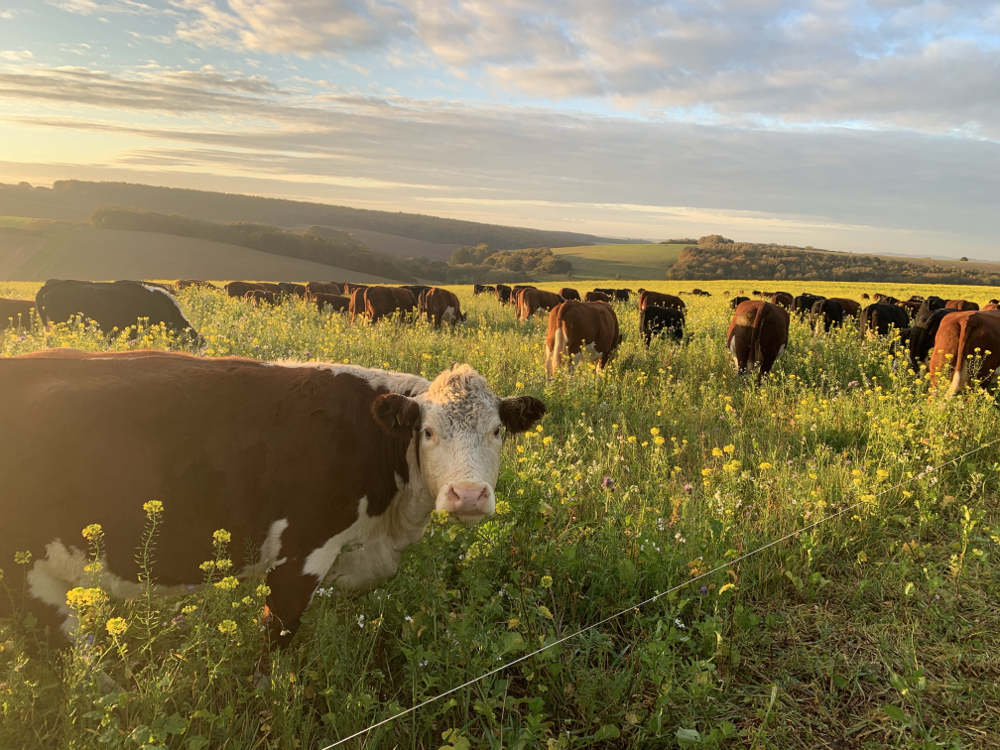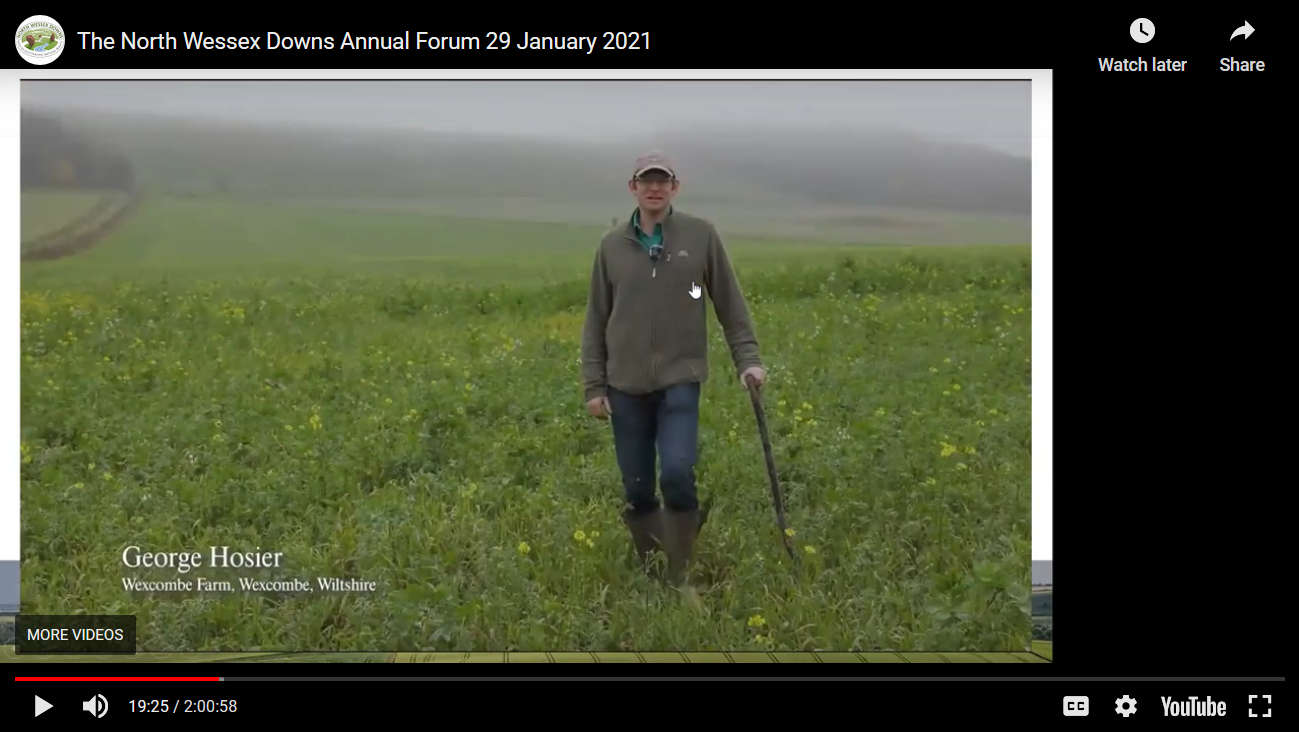SOILS
our most precious asset
Soils are the most important asset on our farms. The Southern Streams farmers aim to manage our farms in ways that enable us to:
- Have fertile soils that are high in organic matter with diverse soil fauna
- Protect our rivers and groundwater
- Prevent flooding
- Exchange atmospheric gases and act as a carbon sink, absorbing excess carbon dioxide
What we do
Minimise soil disturbance
Ploughing and subsoiling are sometimes necessary for weed control or to rectify compaction, but by limiting cultivation depth and tractor passes or even direct drilling, we can minimise soil disturbance, preserve the life in the soil and retain good soil structure. Good soil structure is essential for air and water infiltration, which reduces greenhouse gas release, retains nutrients and microbes, reduces erosion and is resistant to compaction by machinery or livestock.
Keep soils covered
We aim to maintain soil cover all year round, with either plants or plant residue. This protects the soil surface from being exposed and eroded by wind and rain, reduces water loss by evaporation and increases biological activity and organic matter.
Keep living roots in the soil for as many days of the year as possible
Living roots create symbiotic relationships with soil microbes. The roots will exude nutrients to feed the microbes, which in turn will convert different soil nutrients into plant-available ones. When there is no crop growing for more than 8 weeks, cover crops can be sown. These feed the soil fauna and the roots also provide aeration.
Increase plant diversity
We have diverse crop rotations which will distribute different nutrients and interrupt the life cycle of pests, diseases and weeds. We also sow wildlife-friendly plants along field edges to encourage natural predators or pests. This enables us to be less dependent on chemical applications.
Integrate Livestock (or apply manures/composts)
Fertiliser from livestock or compost helps us build organic matter by providing carbon and nitrogen substrates as well as additional gut microbes. Gut microbes and those found in the soils are identical therefore feeding soils with manures or composts can be beneficial to the soil microbes as well as being a fantastic source of carbon to build soil carbon levels.

Soil monitoring
Understanding our soils will help us identify how best to improve them. To do this, we carry out tests including earthworm counts, water infiltration tests and nutrient tests to allow us to target inputs or monitor our management techniques.
George Hosier, Wexcombe Farm, Wexcombe
Discussing improving soil health.
Find Out More:
- https://www.agricology.co.uk/sites/default/files/NIABTAG%20Cover%20Crops_lowres.pdf
- http://www.fao.org/resources/infographics/infographics-details/en/c/216754/
- https://www.pastureforlife.org/why-pasture/better-for-our-environment/
- http://www.google.com/url?sa=t&rct=j&q=&esrc=s&source=web&cd=&ved=2ahUKEwjPguOiubbsAhVloXEKHec2B6wQFjAHegQIBxAC
&url=http%3A%2F%2Fpublications.naturalengland.org.uk%2Ffile%2F50073&usg=AOvVaw2to5lO9lAiPsovZJ5pnTXS
